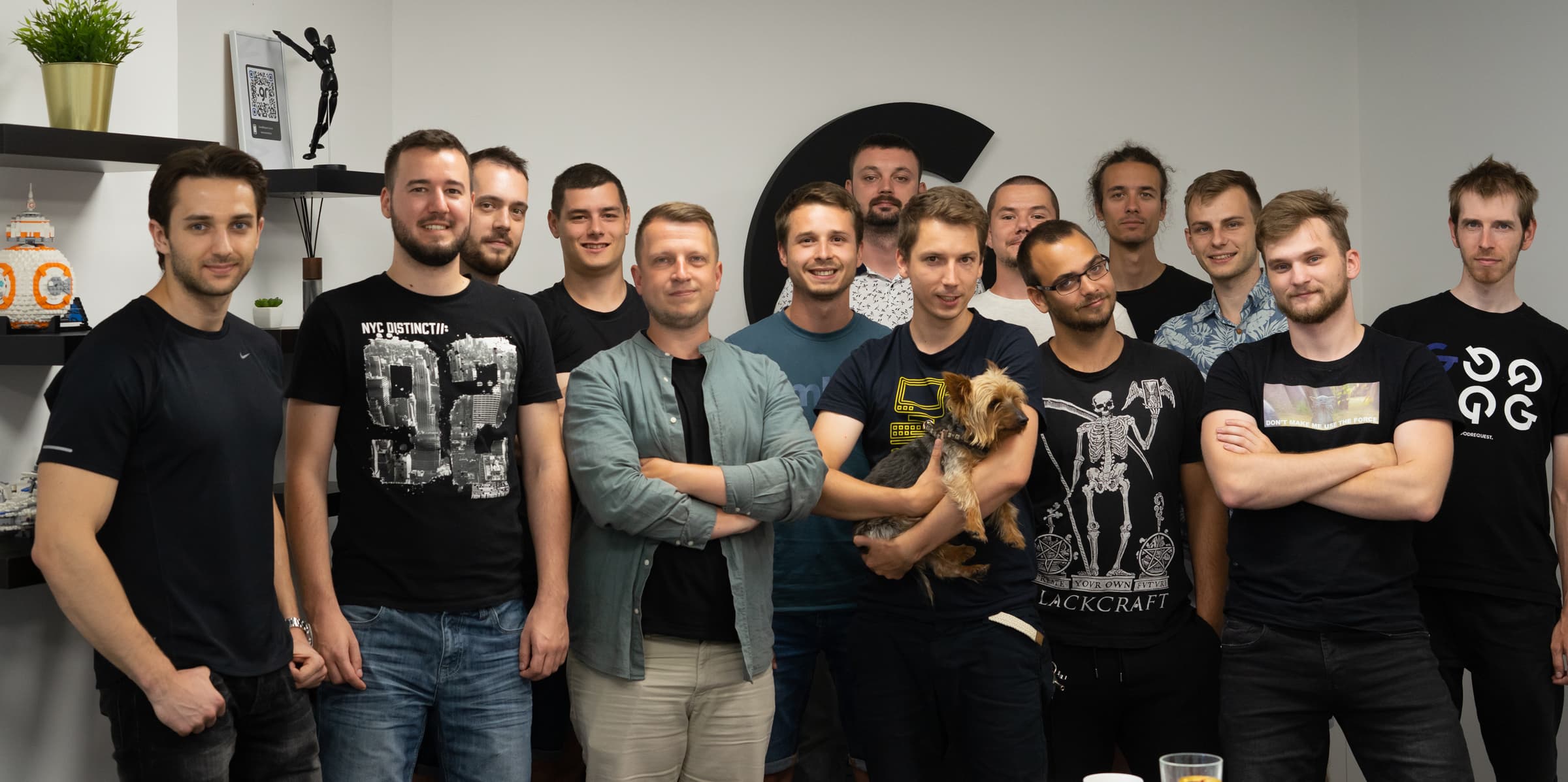
Practical guide to visual accessibility

Time for team and individual training is a common work benefit in the IT world. But how to motivate the team members to make full use of this time and have it benefit them as much as possible? At the Frontend team, we tried the concept of Frontend days.


In GoodRequest, each job position has an ideal percentage of working time that should be spent on education. This percentage depends mainly on the seniority of the employee and the setting of his individual educational plan, but it constitutes a relatively significant part of the time pool.
In practice, however, there were cases that employees did not use the time reserved for individual training to the full potencial, because they either had a subconscious feeling that they should rather devote themselves to working on projects, or they simply did not know how to train effectively, despite the fact that they had set goals and specified areas in which we found room for improvement. That's why we decided to deal with education more as a team and set aside days during which we will switch off from project work and focus only on education together. But how to use them as efficiently as possible?
For a long time, we struggled with the topic of effective team training. Would it make sense for us to attend a conference together? Or will we listen to an online lecture together? Alternatively, do we prefer to invest in an external trainer? We tried to take it step by step...
A physical visit to a professional conference did not work well for us. It is relatively time and financially demanding (transfer to the venue, accommodation, tickets...) and the real benefit depends very much on the quality of the individual presentations. And it is, let's face it, even at quality conferences to say the least fluctuating. Many companies conceive lectures at conferences mainly as a place for hiring, and instead of informational value, we rather learn about how XY company is great in everything and we should go to work for them 🙂 All credit to companies that perceive it differently and try to push industry forward. But they are really rather exceptions. And so the conferences turned into more of a form of teambuilding, where the team meets together and occasionally learns something interesting, but as far as education is concerned, it does not advance anyone much.
During the pandemic, the bag was literally torn open with online conferences, which began to replace established conferences with physical participation. However, it is quite difficult to choose the most suitable one, since the only thing we know about the program are the names of the individual blocks and the names of the speakers. We had very mixed feelings about the online conferences we attended. The quality of the speakers was not so consistent, the topics were sometimes too diverse (for example, running into the world of IoT at the JavaScript conference), and technical problems with the connection or audio quality occurred more often than would have been pleasant. It's also quite difficult to stay focused while watching from a distance, so we often found ourselves discussing the topic with each other more than watching the speaker.
It was the experience with one absolutely unsuccessful online conference that led us to the idea that we must know how to do it better. For ourselves - internally. Our own conference, at which only topics that interest us will be presented, only high-quality speakers (team members 🙂) will appear there, and at the same time we will all meet together physically and thus also strengthen the team. We decided to add a high-quality half-day workshop from an external environment and the educational mix called Frontend Days was born.
We divided the two-day program into three different blocks:
Of course, bonding of the team also belongs to education. We had a joint barbecue on the balcony, competed in go-karts, visited a beer saloon, or went to a team dinner. So it was a really busy two days, which we used to the fullest.
After the end of Frontend Days, we sent a questionnaire to the team, in which we asked for their opinion on the quality of the entire event, the external lecture, or the comparison with regular conferences.
Even in our very "constructive-critical" team, the event was evaluated very positively, and more than three quarters of the team would rather repeat such an internal educational event than attend an online or offline conference.
Of the more critical opinions, we especially took to heart the fact that it is not entirely ideal to organize such an event in the heat of July in a non-air-conditioned meeting room 😃. It was therefore a bit more difficult to concentrate on the content of the presentations for two whole days.
As for the content itself, the feedback showed that we should dedicate a little more space educational lectures and less project showcases. The external training was evaluated very positively and there were also interesting ideas for other workshops that we could attend in the future.
Overall, the first edition of Frontend Days was a great success, we shared a lot of news and best practices from the world of Frontend, and together we strengthened the team , we had fun and also collected feedback on how to make the next event even better. For me, I can definitely recommend such an internal educational event, as it objectively brought us much more added value than individual self-education or visiting an online or offline conference.
